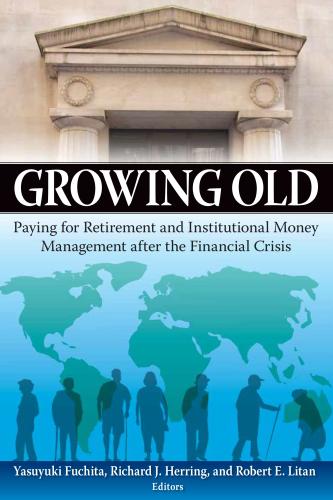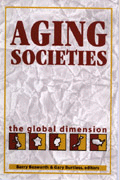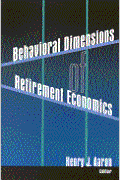Abstract
A model of retirement decision-making is described in which a relatively small number of agents are rational. Such agents behave as if they compute the optimal age at which to retire. A small proportion of agents retire at random. A majority of the population engages in imitative behavior. An imitative agent retires once a certain fraction of the agents in its social network have retired. The model is analyzed by agent-based computational techniques. It is demonstrated that high levels of optimal behavior can result in the aggregate despite low levels of individual rationality.
A formal version of this paper was published in Behavioral Dimensions of Retirement Economics, 1999.
The Brookings Institution is committed to quality, independence, and impact.
We are supported by a diverse array of funders. In line with our values and policies, each Brookings publication represents the sole views of its author(s).







